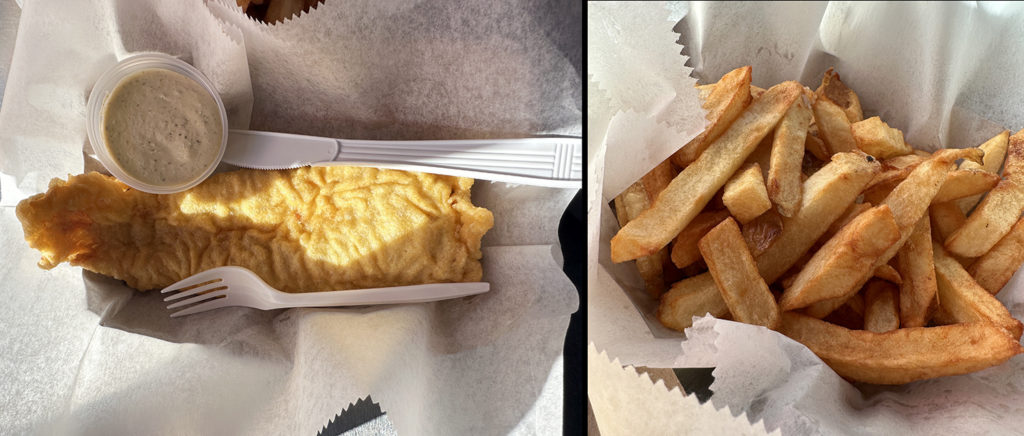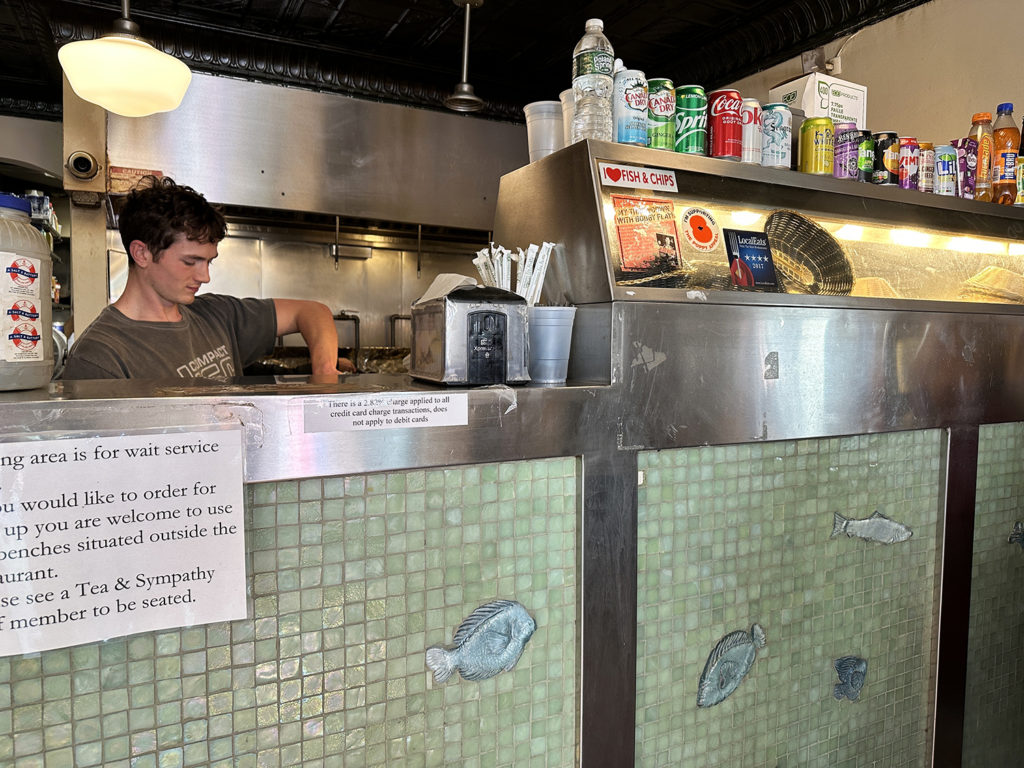Gastropod looks at food through the lens of science and history.
Co-hosts Cynthia Graber and Nicola Twilley serve up a brand new episode every two weeks.
Co-hosts Cynthia Graber and Nicola Twilley serve up a brand new episode every two weeks.
Panikos Panayi is a professor of European history at De Montfort University in Leicester, and the author of Fish and Chips: A Takeaway History.
Self-titled "seafood evangelist," Barton Seaver was an award-winning chef before he left the restaurant industry to become a sustainable seafood educator. He is the author of the cookbook For Cod and Country as well as American Seafood: Heritage, Culture, and Cookery from Sea to Shining Sea.
Mark Kurlansky is the author of the book Cod: A Biography of the Fish that Changed the World, which won a 1999 James Beard award.
Nicky Perry is the owner of A Salt & Battery, a fish and chip shop—or chippy, as she and Gastropod's own Nicky would call it—in Manhattan's West Village.


Fish and its life partner, chips, at the West Village's A Salt & Battery. Photos by Nicola Twilley.
Click here for a transcript of the show. Please note that the transcript is provided as a courtesy and may contain errors.